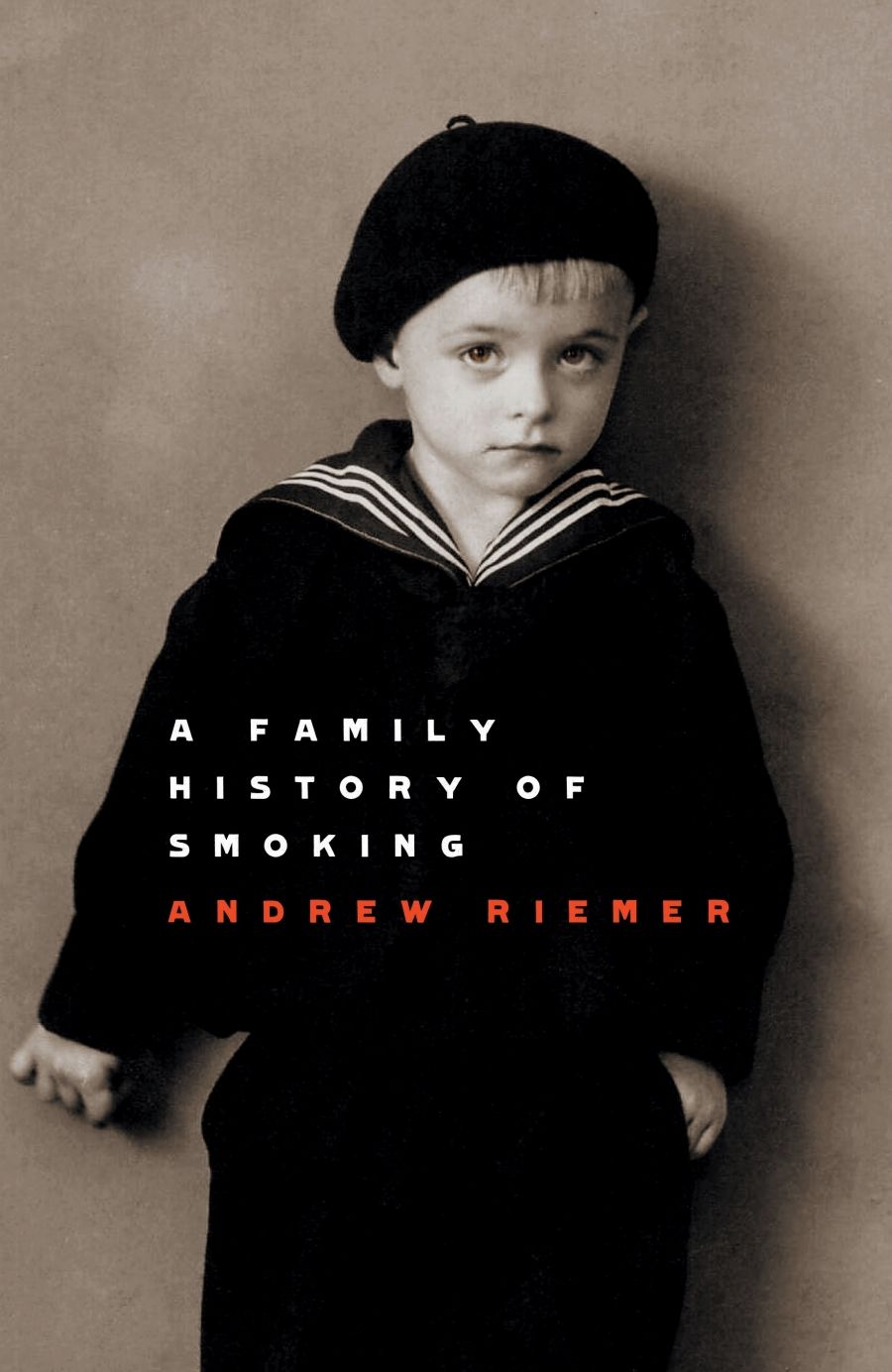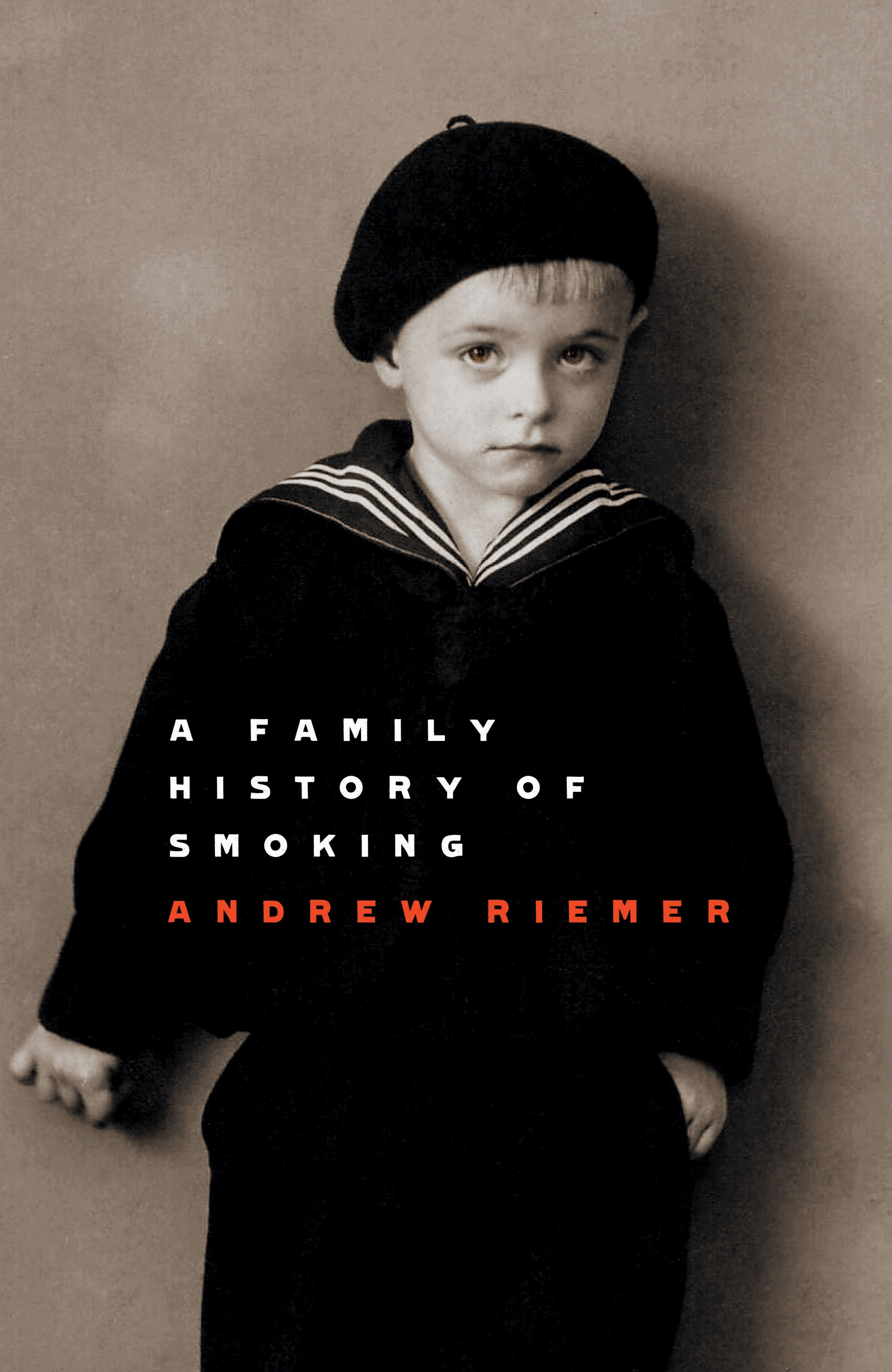
- Free Article: No
- Contents Category: Memoir
- Review Article: Yes
- Article Title: Lighting up
- Online Only: No
- Custom Highlight Text:
A Family History of Smoking, the most recent of Andrew Riemer’s memoirs, focuses on the world of his great-grandparents, his grandparents, and his parents. In so doing, it traces Hungary from the days of the Austro-Hungarian empire and its collapse at the end of the Great War, on through the brief springtime of the 1930s and the chaos of displacement and destruction of World War II. It is a rich and rewarding memoir.
- Book 1 Title: A Family History of Smoking
- Book 1 Biblio: MUP, $32.95 pb, 217 pp
- Book 1 Cover Small (400 x 600):

- Book 1 Cover (800 x 1200):

Riemer’s background is typically bourgeois: city dwellers on his father’s side and provincial people on his mother’s. While earlier generations on both sides had practised Judaism, by the time Hitler assumed power Riemer’s forebears, like so many Hungarians, Australian and Germans, had severed all practical and sentimental ties with their Jewish heritage. When Hungary joined the Axis powers in 1941, Riemer’s thoroughly secular family was forced inside a Jewish identity that was alien and in every sense uncongenial.
In his first volume of memoirs, Inside Outside (1992), Riemer portrayed himself as an outsider trying to fathom the moves of the insiders, a man who would eventually come to straddle several worlds. Joseph Roth, in his essay collection The White Cities (2004), wrote that he felt a stranger (fremd) wherever he happened to be. Roth, like his character Lieutenant Trotta in The Radetzky March (1932), found home – permanence, familiarity – in alcohol. In A Family History of Smoking, Riemer suggests that for his mother and her family, and perhaps for himself, too, there is a sense of home to be engendered by smoking.
Non-smokers cannot comprehend the complex epistemology of smoking. Smoking is less about nicotine addiction and more about ritual, of slowing time, of creating a safe, private world with you, the smoker, at the centre. Beyond your cigarette-induced sanctuary may well be chaos and confusion, but for the few minutes of a cigarette and in a space a little larger than your own body, you will be protected.
Riemer’s mother’s family were, by and large, devoted smokers. Indeed, smoking was one of life’s pleasures, as it has been for Riemer himself. His father’s family were largely non-smokers, and in the case of his paternal grandmother, trenchantly anti-smoking. She regarded smoking as a despicable, immoral habit. The fact that Andrew’s mother came from a family of smokers and indulged in the habit herself was sufficient to predispose Grandmother Riemer against the marriage. Nonetheless, the marriage went ahead, surviving economic privations, war and a culture that went ‘up in smoke’, and, with the move to Australia, displacement and exile, and the perplexing customs of a strange new land.
When Hungary joined the Axis powers, five-year-old Andrew and his family were living in the outer reaches of Budapest near a small airfield which became a target of the Allied bombing. On the evening of the first air raid, Riemer’s parents were out visiting friends, leaving Andrew in the care of his grandmother and Rosie, the woman employed to look after him (he was never allowed to refer to her as a servant). When the bombs began to fall, his parents rushed home to find their son hysterical. But rather than comfort the boy, Riemer’s mother sat in a chair and smoked cigarette after cigarette until her case was empty; then she fell asleep. In the morning she was appalled at her behaviour: not only had she failed her son in his moment of need, she had smoked in front of him, the first time ever. And yet, in that first shock of war, she acted in a way all smokers will recognise, using cigarettes to create a small temporary haven which safeguarded her against responsibility and action.
At the end of 1942 or early in 1943 – Riemer has no way of knowing the precise date – the family moved back to the city. By this time, his mother had become a chain-smoker and, as the bombing of the city increased, nightly she would go down to the shelter with two packs of cigarettes and a flask of the alcohol on which she was increasingly reliant. Later, after Riemer’s father had been forced into a labour camp and their apartment block was declared to be ‘for Aryans only’, Andrew, his mother and grandmother moved in with his great-aunt and her family – seven in all in the tiny flat. The smoking continued but the drinking stopped as Elisabeth Riemer set about the risky business of foraging for food and cigarettes in streets forbidden to Jews.
In the last months of the war, Andrew and his mother, their Jewish identity disguised by false papers, lived a precarious and deprived existence in a cellar shared with Hungarian nationalists who would have handed them over with-out a moment’s thought. Riemer’s portrayal of these months is one of the most powerful accounts I have ever read of what it took to survive in those brutal days. The cigarettes had run out long before, but not plain human grit.
The first two of the four sections of A Family History of Smoking relate the stories of both sides of Riemer’s family. His father was the more reserved of the couple, a not-always-successful business man who had been raised in the bourgeois world with a scandal to hide: his father, Riemer’s grandfather, had a second family, a woman in Prague with whom he eventually went to live, returning to his first family only for the annual summer holiday so that appearances would be preserved. Money was scarce in the father’s family and, with such a secret, there was little to laugh about. No wonder he was drawn to the lively, nail-painting, cigarette-smoking girl he eventually married.
There is a texture of discovery and wonder, of hypothesising and musing, as Riemer explores the world of his forebears, but there is, at the same time, a sad acknowledgment of what has been irretrievably lost. All of his father’s family perished – either in the Allied bombing or Auschwitz (his father never found out which) – and while his mother’s family survived, by the time Riemer started excavating the family histories, apart from a chain-smoking ancient cousin in Budapest there was no one from the immediate family left to consult.
Riemer is an irresistible memoirist. He takes the reader on his journey of discovery in such a way that his questions and discoveries, his bemusement and confusions, his pleasures and losses become ours. And he has achieved this from his first volume, Inside Outside, a highly personal account of the struggles of a young outsider to learn the ropes of Australian life in the 1950s and 1960s. In The Habsburg Café (1993), Riemer relates his return to Hungary in the heady days of 1990, his first trip back in nearly fifty years, and Sandstone Gothic (1998) tells how the ‘reffo’ boy found a home as a student at the University of Sydney and his return there as an academic. And now A Family History of Smoking, which recovers his European heritage.
Considered together, there is a constant thread throughout these memoirs, very much in keeping with Joseph Roth’s concept of home. Riemer draws on literature, above all, to make sense not just of the events he uncovers but to sketch in the often blank pages of his own history. In A Family History of Smoking, Robert Musil’s The Man without Qualities (1930–43), Roth’s The Radetzky March, Imre Kertész’s Fatelessness (2004) and Stefan Zweig’s extraordinary portrait of social and political mores just before World War I, Beware of Pity (1939), fill in the context when the facts of Riemer’s own family history run out. And throughout these memoirs he draws on Australian literature as well, including the work of David Malouf, Glenda Adams and Patrick White (Riemer’s life-changing discovery of Riders in the Chariot, related in Inside Outside, remains to this reader powerfully vivid a decade on).
Andrew Riemer has an entrée to many worlds. But his memoirs reveal that, wherever he may be, he stands on the fluid ground of the intellectual. He is the quintessential outsider who will always be located at the margins of the mainstream – with or without the experiences of dislocation and immigration.


Comments powered by CComment